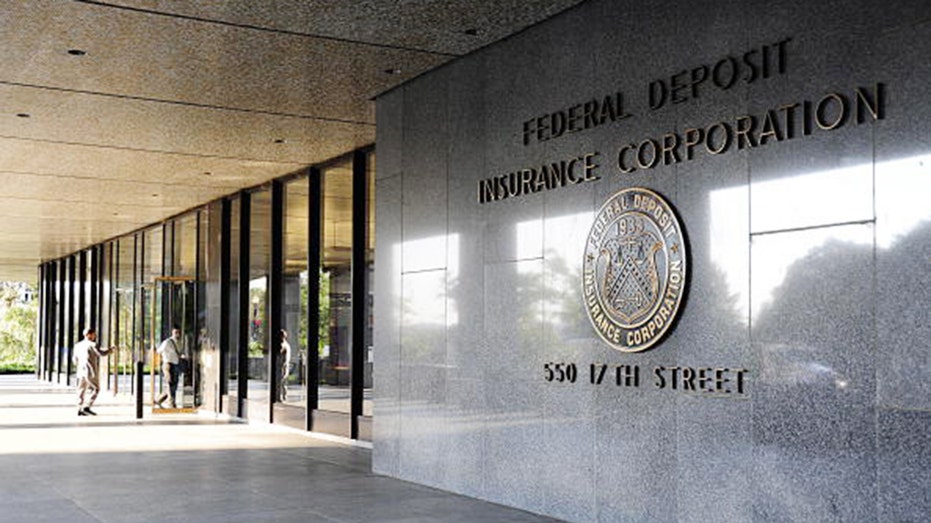US regulators warn banks of heightened liquidity risks in crypto-related deposits
Banks called on to apply risk-management practices when dealing with crypto
Andrew Durgee on crypto: Admin making a mistake on regulation through enforcement
Andrew Durgee, head of Republic Crypto, discusses possible regulation crackdowns in the crypto industry, Kraken's woes and FTX founder Sam Bankman-Fried's bail hearing.
A trio of regulators including the Federal Reserve warned banks to be mindful of liquidity risks related to cryptocurrencies, the latest move by U.S. officials to limit the economy’s vulnerability to the tumultuous market.
The Fed, Office of the Comptroller of the Currency and Federal Deposit Insurance Corp. said in a joint statement Thursday that banks should apply effective risk management when dealing with deposits linked to crypto entities. These include robust due diligence and monitoring of crypto entities that establish deposit accounts, as well as incorporating the potential volatility of those deposits into routine stress tests.
A regulatory crackdown on crypto—fueled partly by the November collapse of trading firm FTX—has left some banks spooked about doing business with the sector. The latest statement comes after a January warning in which the three regulators said certain types of crypto-related activities were "highly likely to be inconsistent with safe and sound banking practices."

FTX founder Sam Bankman-Fried leaves Manhattan Federal Court after his arraignment and bail hearings on December 22, 2022 in New York City. Bankman-Fried, who was indicted on December 9th and arrested 3 days later by Bahamas law enforcement at the re (Michael M. Santiago/Getty Images / Getty Images)
That has led to fears in the crypto industry that U.S. regulators could cut off crypto firms’ access to the banking system—a potential death blow that would limit investors’ ability to exchange assets such as bitcoin for dollars.
"I do think that the effect of all the recent guidance will be for some banks to be more cautious about wading into this space," said Alison Hashmall, a lawyer in Debevoise & Plimpton LLP’s financial-institutions and banking practice. She noted, however, that regulators haven’t explicitly prohibited nor discouraged banks from serving customers in crypto.

The Federal Deposit Insurance Corporation headquarters is seen on October 1, 2008 photo in Washington, DC. The FDIC was joined by the Office of the Comptroller of the Currency and the Federal Reserve in warning banks to be mindful of liquidity risk. (Getty)
Regulators on Thursday flagged two types of bank deposits that they said could be susceptible to unpredictable "large and rapid inflows as well as outflows."
CLICK HERE TO GET THE FOX BUSINESS APP
The first are deposits placed by crypto firms for the benefit of their customers, who may react swiftly to market events, media reports and uncertainty. As a result, the stability of these deposits may not be driven solely by the firm, particularly in times of stress or market volatility, the regulators said.
The second type of deposits flagged by regulators is related to stablecoins, a class of cryptocurrencies that seek to maintain a 1:1 parity with the dollar or other official currencies. Issuers of stablecoins typically ensure this parity by holding reserves in the form of bank deposits and highly liquid Treasury securities.

An illustration picture taken in London on May 8, 2022, shows a gold plated souvenir cryptocurrency Tether (USDT) coin arranged beside a screen displaying a trading chart. - Tether (USDT) is an Ethereum token known as a stablecoin that is pegged to t (Photo by Justin Tallis/AFP via Getty Images / Getty Images)
For banks, however, the stability of these deposits shouldn’t be taken for granted, the regulators warned. They said stablecoin reserves "can be susceptible to large and rapid outflows" if stablecoin holders decide to redeem the assets for cash, if broader crypto markets encounter turmoil or if confidence wanes in the stablecoin issuer.
STABLECOINS ATTRACT SCRUTINY IN SEC’S DRIVE TO CONTROL CRYPTO
Because stablecoin issuers often maintain razor-thin buffers against potential losses, regulators have long warned of stability risks. Large-scale redemptions could force issuers to offload reserves in a fire sale, potentially resulting not only in losses to stablecoin investors, but a drop in prices for Treasury securities.




















